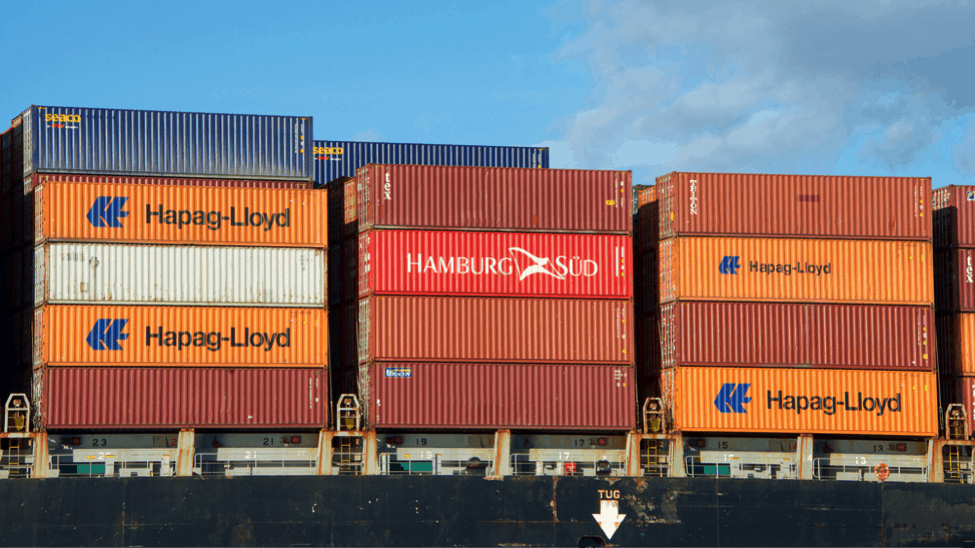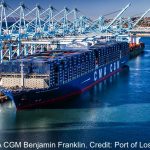FMC & DOT Intensify International Shipping Probe… So They Say
Right now, there are a few governmental moves concerning international shipping that should pique U.S. shippers’ interest.
First, the Federal Maritime Commission (FMC) voted to proceed with two initiatives related to detention and demurrage fees. Second (though first chronologically), the commission announced the membership of its new Shipper Advisory Committee, which “will advise the Commission on policies relating to the competitiveness, reliability, integrity, and fairness of the international ocean freight delivery system.”
Third, the Department of Transportation (DOT) is looking to hear from the public on problems in the supply chain as it makes a report in response to President Biden’s executive order that specifically mentioned the international shipping industry.
Background
Shippers make a bevy of complaints about unfair practices in the international shipping industry. For years, unfair demurrage and detention fees have been at or near the top of the list of shippers’ complaints. Every once in a while, the Federal Maritime Commission makes some noise about looking into or doing something about these unfair fees. Unfortunately, it has added up to little more than noise.
Lately, the FMC, Biden Administration, Congress, Department of Justice (DOJ), and the DOT have added a little pressure to the international shipping industry – with the industry’s complained-about fees, soaring freight rates, and competition-shrinking carrier alliances. Here are a some recent related stories:
FMC & Chinese Regulators Address Ocean Carriers About Freight Rates
FMC Ups Reporting Requirements on Carrier Alliances
U.S. Importer Files Carrier Collusion Complaint with FMC
Is the Government Going After Carrier Alliances?
Could Biden’s Executive Order Endanger Carrier Alliances?
Now let’s get into the three governmental moves that could give shippers some hope that the problems they face in the international shipping industry will eventually be addressed. Maybe.
1. FMC’s Demurrage and Detention Initiatives
The FMC issued a press release yesterday (September 15th), announcing two initiatives, which were moved forward by vote:
The first initiative is to issue a policy statement on issues that affect the ability of shippers, truckers, and others to obtain reparations for conduct that violates the Shipping Act, including conduct related to demurrage and detention.

So the first initiative is to issue a policy statement. It’s not a policy statement itself, just that one is coming. They’re saying the FMC is on the case, and we’ll come up with something soon. Bold words.
Here’s the second initiative:
Additionally, the Commission in due course will issue an Advance Notice of Proposed Rulemaking (ANPRM) that will solicit public comments on two questions: first, whether the Commission should require ocean common carriers and marine terminal operators (MTOs) to include certain minimum information on or with demurrage and detention billings; and second, whether the Commission should require carriers and marine terminal operators to adhere to certain practices regarding the timing of demurrage and detention billings.
I love that this initiative opens with “in due course.” That always makes you feel like things will be happening imminently. This initiative isn’t even in due course, we’ll set this policy. No, this is, in due course, we’ll let the public submit opinions about whether or not we should set policy on these issues.
The press release isn’t long, so here’s its full text:
FMC to Issue Guidance on Complaint Proceedings and Seek Comments on Demurrage and Detention Billings
Posted September 15, 2021
The Federal Maritime Commission has voted to move forward with two demurrage-and-detention related initiatives proposed by Commissioner Rebecca F. Dye as part of Fact Finding 29. Unlike Commissioner Dye’s other Interim Recommendations, these initiatives required formal Commission approval.
The first initiative is to issue a policy statement on issues that affect the ability of shippers, truckers, and others to obtain reparations for conduct that violates the Shipping Act, including conduct related to demurrage and detention. The policy statement will provide guidance on the scope of the prohibition against carrier retaliation, when attorney fees may be imposed on a non-prevailing party, and who may file a complaint with the Commission alleging unreasonable conduct.
Additionally, the Commission in due course will issue an Advance Notice of Proposed Rulemaking (ANPRM) that will solicit public comments on two questions: first, whether the Commission should require ocean common carriers and marine terminal operators (MTOs) to include certain minimum information on or with demurrage and detention billings; and second, whether the Commission should require carriers and marine terminal operators to adhere to certain practices regarding the timing of demurrage and detention billings.
The Commission has also moved forward with other recommendations from FF29, including hiring additional staff for CADRS, including one person who will be designated as the agency’s exporter advocate. The Commission will make announcements related to other recommendations as developments warrant.
2. FMC Announces National Shipper Advisory Committee Membership
This next announcement from the FMC came from a press release published last week (on September 9th).
The FMC has officially announced who the members are of its newly formed National Shipper Advisory Committee.
“The Committee is comprised of 24 members,” the FMC said, “evenly divided between those who export cargo from and those who import cargo to the United States, that will advise the Commission on policies relating to the competitiveness, reliability, integrity, and fairness of the international ocean freight delivery system.”
The list has representatives from big U.S. shipping companies you’d expect, such as Walmart, Target, and Amazon. Amazon actually operates its own ships rather than solely depending on ocean freight carriers, like other U.S. importers and exporters, making the company’s an interesting voice in the group. With as poorly as U.S. agricultural exporters have been treated during the pandemic, it’s good to see they have a couple representatives on the list, one from American Commodity Company and another from Tyson Foods.
Here’s the full list:
- Committee members will serve until December 31, 2024.
- Michael Brock, Walmart
- Brian Bumpass, Brenntag North America, Inc.
- Justin Cauley, CHS, Inc.
- Robert Connor, Mallory Alexander International Logistics, LLC
- Chris Crutchfield, American Commodity Company
- Rick DiMaio, Office Depot
- John Esborn, Wayfair, LLC
- Scott Fremont, Target
- Sean Healy, The Scoular Company
- Steven Hughes, MEMA/Auto Care Association
- Alexis Jacobson, BOSSCO Trading LLC
- Fernando Lagonell, DuPont
- Alison Leavitt, Wine and Spirts Shippers Association
- Daniel Miller, Cargill Incorporated
- Debb Minskey, IKEA
- Jennifer Morrissey, Ocean Spray Cranberries, Inc.
- Kenneth O’Brien, Gemini Shippers Group
- Adnan Qadri, Amazon
- Richard Roche, Mohawk Global Logistics
- Gabriel Rodriguez, A Customs Brokerage, Inc.
- Randy Strait, Tyson Foods
- Michael Symonanis, Louis Dreyfus
- Joshua Woods, Blue Diamond Growers
3. DOT is Probing… Soon… Probably
Finally, we get to the DOT. And in typical governmental style, it has announced it plans to seek public opinion pertaining to supply chain problems for a report that it also plans to write.
No, the announcement here is not that it is asking for public opinion, let alone has written a report, on supply issues. The news is the DOT plans to do these things.
Michael Angell reports in the Journal of Commerce (JOC):
The DOT said in a regulatory filing Tuesday that it plans to seek input from the public to prepare a report on problems related to the US supply chain. The DOT said the report aims to provide input for President Joe Biden’s February executive order on how US supply chains can be made more resilient.
The DOT said it is seeking comments on “operational bottlenecks and chokepoints” that are slowing the movement of freight, whether shortages in equipment and warehousing are exacerbating those problems, and what the best solutions might be.
Of course, a report is still not actually taking action on an issue. It’s a step toward it. And we’re a step closer to that report. Well, we’re a step closer to an actual step toward that report. Kind of. There has definitely been an announcement made.
Conclusion
The government is doing what it does best. It’s making some noise about a long-standing issue while we all wait to see when it takes action. If it takes action. When and if it does take action, the next questions will be if that action is the correct action to take, if it is effective in creating change, and whether the change it does make will actually prove positive.
But we don’t need to worry about those questions for quite some time. In the meantime, shippers will do the best they can importing and exporting goods. At least you’ve always got Universal Cargo by your side.
“DOT has heard from many stakeholders about issues related to bottlenecks on highways, rail, and at ports, as well as severe container/chassis shortages and lack of adequate warehousing capacity, particularly around the nation’s largest ports,” the agency said in its filing.




